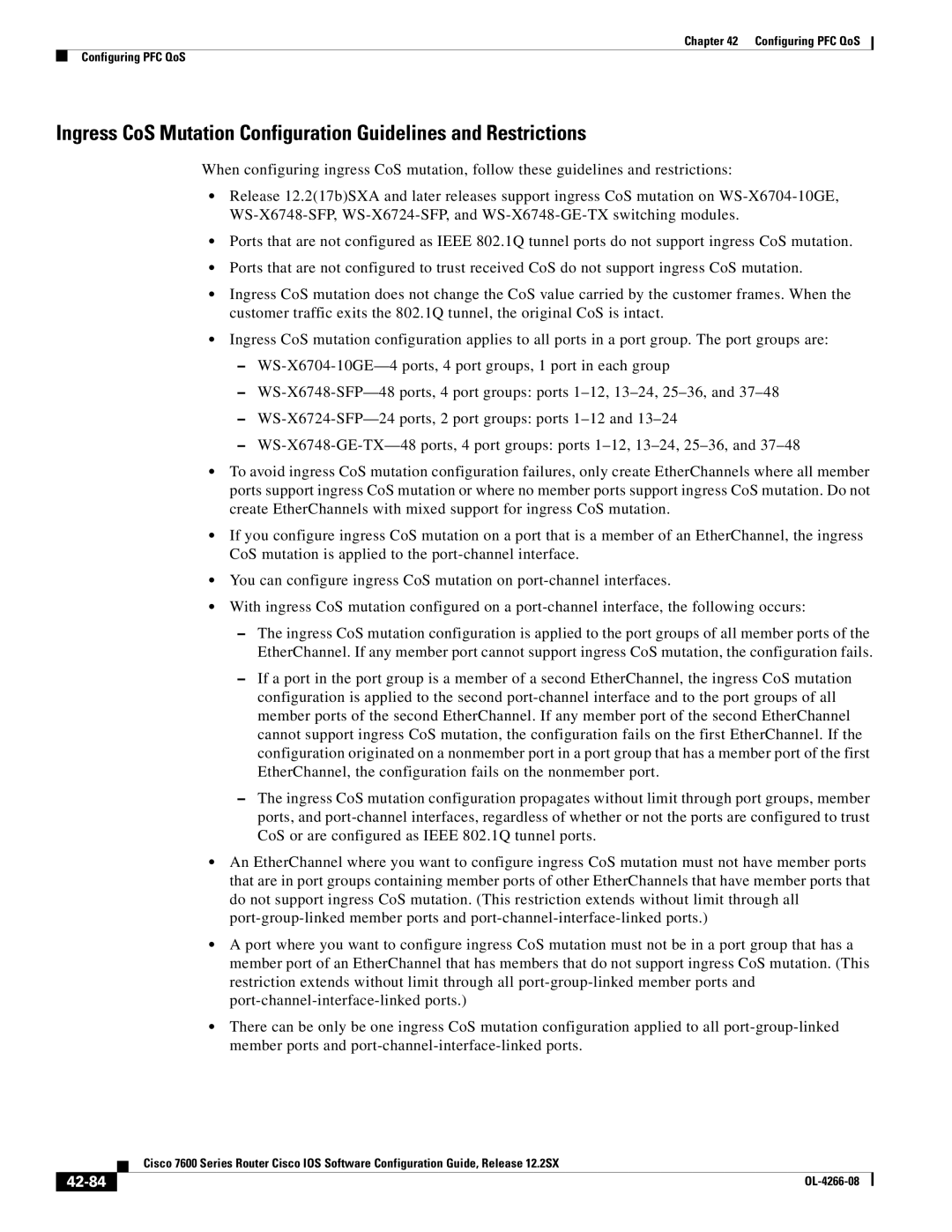OL-4266-08 specifications
Cisco Systems OL-4266-08 is a robust and versatile certification that focuses on the essentials of implementing and troubleshooting Cisco collaborations solutions. As enterprises increasingly rely on unified communications, having professionals who are knowledgeable in the latest Cisco technologies becomes a necessity. This certification is part of the Cisco Certified Network Associate (CCNA) program, which serves as a foundational stepping stone for individuals aspiring to build a career in networking and collaboration technologies.One of the main features of OL-4266-08 is its emphasis on collaboration foundations, which includes an understanding of voice, video, messaging, and conferencing technologies. Professionals who obtain this certification demonstrate proficiency in deploying, configuring, and troubleshooting Cisco collaboration solutions like Cisco Unified Communications Manager and Cisco Webex. This knowledge is critical as businesses seek to enhance communication and productivity through integrated systems.
Technologically, OL-4266-08 covers a wide array of essential concepts, including IP telephony, voicemail, and collaborative tools. Candidates learn about the architecture of unified collaboration systems, involving integration with routing and switching networks. Additionally, it delves into security protocols to ensure secure transmissions of voice and video data, thereby protecting sensitive corporate communication.
In terms of characteristics, OL-4266-08 is designed to be both comprehensive and practical. The certification emphasizes hands-on experience, which is essential for understanding real-world applications of Cisco technologies. The coursework provides extensive exposure to simulations and labs that mimic actual network environments. This hands-on approach enables candidates to troubleshoot issues effectively using Cisco's troubleshooting tools and methodologies.
Moreover, the certification aligns with industry standards, ensuring that individuals gain relevant and in-demand skills. Given the evolving landscape of network technologies, OL-4266-08 prepares individuals for future growth and specialization in various areas, including cloud collaboration and Internet of Things (IoT) communications.
In conclusion, Cisco Systems OL-4266-08 equips networking professionals with the necessary skills to implement and support Cisco collaboration solutions. The focus on hands-on experience, along with in-depth coverage of technology and security protocols, makes it a valuable certification in the fast-paced world of network communications. With the rise of remote work and digital collaboration, this certification is pivotal for anyone looking to enhance their career in networking and technology.

